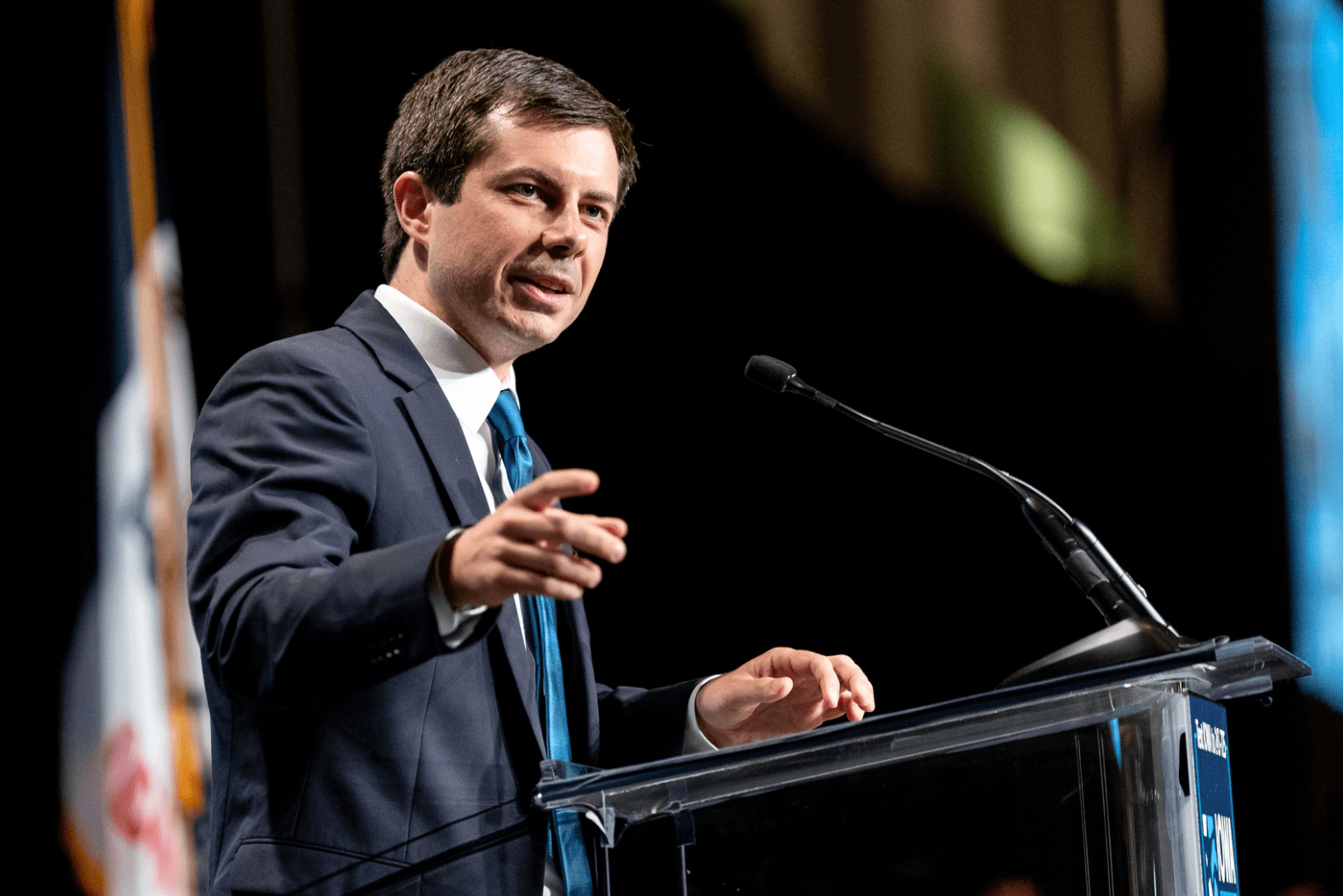The U.S. Department of Transportation is re-branding one of its largest discretionary grant programs in order to reward regional and local governments who put "equity" and "sustainability" first in their transportation projects. But some advocates are holding their applause until they see how the department defines those critical terms.
The department announced yesterday that it will rename a controversial Trump-era program as the "Rebuilding American Infrastructure with Sustainability and Equity (RAISE)" program, and will for the first time actively "prioritize projects that can demonstrate improvements to racial equity," as well as those that mitigate the effects of climate change and create good-paying jobs, which were selection criteria in earlier incarnations of the program.
That could be a critical shift for one of the few federal grant opportunities that's made available directly to city and regional governments, many of which struggle to find funding for transit, biking and walking improvements from autocentric state transportation authorities.
Under the last administration, RAISE — then known as BUILD (Better Utilizing Investments to Leverage Development) — primarily funded rural highway projects, heavily favoring states that President Trump carried in the 2016 election. BUILD was itself a rebranding of the Obama-era TIGER program (Transportation Investment Generating Economic Recovery), which primarily funded sustainable transportation infrastructure before Trump's transportation secretary, Elaine Chao, diverted most funds to drivers.
Some advocates and transportation professionals applauded the reboot, and expressed appreciation for a new provision that will set aside for planning grants $30 million of the $1 billion allocated to the program, with $10 million of that going to areas of persistent poverty.
The newly named RAISE grants (the grants formerly known as BUILD and formerly formerly known as TIGER) includes $30 million set aside for planning with $10m for areas of persistent poverty. Dedicated planning funding is smart. Nice work, @SecretaryPete https://t.co/e1vLEZYWgl
— Jason Jordan (@jasonljordan) April 13, 2021
But not everyone is so sure that Transportation Secretary Pete Buttigieg is returning the teeth to the erstwhile TIGER program.
The release noted that RAISE would "award an equitable amount, not to exceed half of funding, to projects located in urban and rural areas, respectively," a decidedly vague statement that fails to acknowledge the fact that 80.7 percent of U.S. residents live in urban areas. One of the biggest criticisms of the BUILD program was that it divided the $1 billion pie evenly between rural and city communities, rather than equitably delegating funds in proportion to population.
And there's almost no information on how, exactly, the department will prioritize racial equity in its grant-making, or how its decisions will honor the dignity of BIPOC communities.
The US DOT continues to prioritize rural transportation, giving rural areas 50% of discretionary BUILD grants despite the fact that >80% of the US population lives in urban areas. https://t.co/odqq9G0qLY
— Yonah Freemark (@yfreemark) September 16, 2020
Other advocates have questioned the Biden administration's larger definition of a "sustainable" transportation investment.
The federal government has a long and dirty history of selling highway-expansion projects as "environmentalism" — under the dubious argument that more road capacity reduces vehicle idling. And some worry that the thoroughly busted myth will continue to guide decision making under the new administration.
In the fact sheet for President Biden's American Jobs Plan, Biden explicitly called for highway "repairs" that would somehow simultaneously address congestion (which can only occur by increasing access to other modes), citing the "over $1,000 every year in wasted time and fuel" that "motorists are forced to pay" because of traffic jams. Some posited that the statement was a coded call for widening freeways under the guise of "modernizing" and "greening" crumbling roadways, and that the same thinking could carry over to the department's discretionary grant programs.
"If 'fix it better' means widening highways at the same time we repair them, the Biden plan will only induce more people to drive — making congestion even worse than what it was before, and putting our carbon emissions on an irreversible upwards trajectory," wrote advocacy group Transportation for America in its analysis of the plan.
Time will tell whether raising the standards on U.S. roadways will mean actual investments in sustainable and equitable transportation or just more of the same green-washed, "colorblind" status quo.






